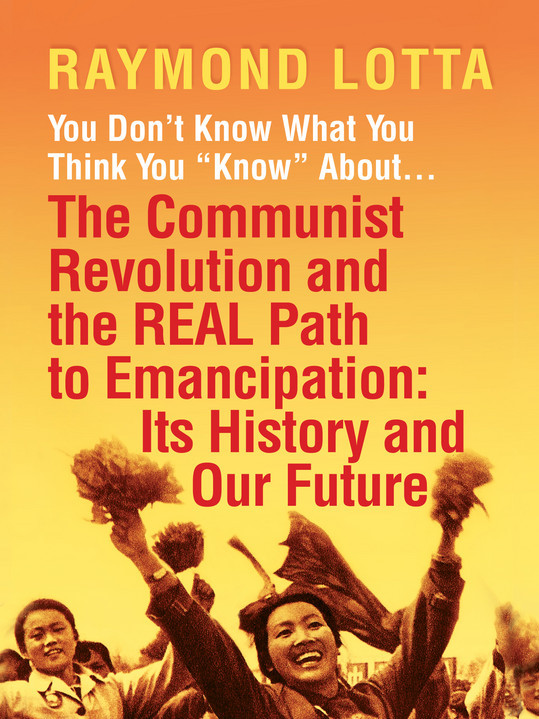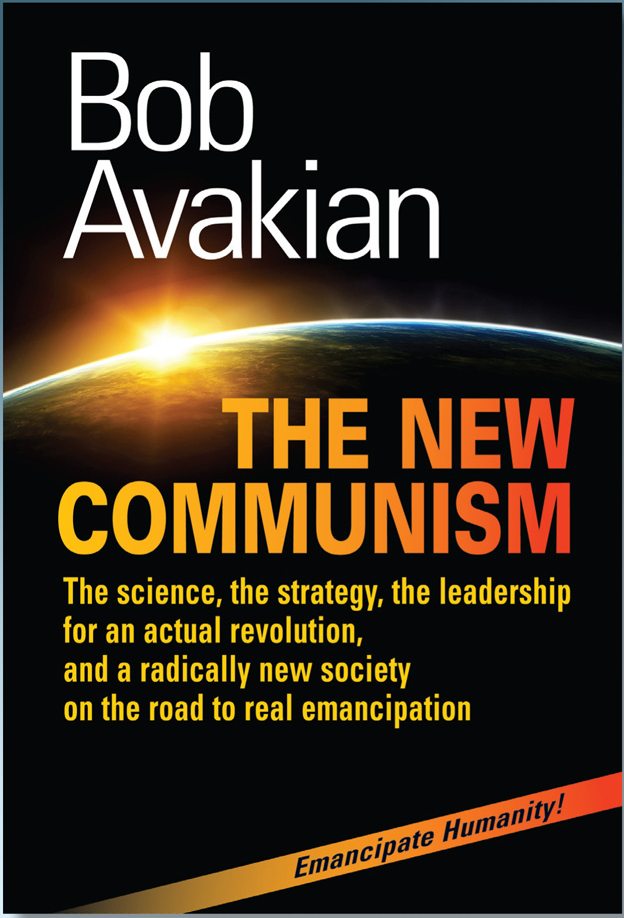From a reader in Colombia:
The Importance of “Setting the Record Straight” on the Revolution in China
| revcom.us
Editors' Note: We received this letter from a reader in Colombia, in response to an article by Raymond Lotta at revcom.us, A Vicious, Idiotic, and Irresponsible Attack on Communism: The Atlantic Equates Mao and Trump...Tossing Truth to the Wind. The reader gives further evidence about how inaccurate statements about Mao in scholarly works are then circulated as so-called “evidence” slandering communist revolution. The translation from the original Spanish is by revcom.us.
Colombia, November 30, 2020
Dear Revolution:
From issue #676, posted online today, Raymond Lotta’s article “A Vicious, Idiotic, and Irresponsible Attack on Communism—The Atlantic Equates Mao and Trump... Tossing Truth to the Wind” caught my attention, rightly criticizing a recent article in The Atlantic by political scientist Edward Steinfeld, professor at Brown University (and formerly MIT).
When reading Steinfeld’s article, you notice the deliberate confusing of literature and literality, very common among anti-communist propagandists. For example, he takes at face value Mao’s call, in his first dazibao in 1966, “bombard the headquarters!”1
But in particular Lotta’s end note, where he lists Steinfeld’s unfounded assertions about the work of Roderick MacFarquhar’s and Michael Schoenhals’ Mao’s Last Revolution [MLR] (titled “La revolución cultural china” in its Spanish version), makes the need to question the sloppy and dishonest academic work not only by Steinfeld but by MacFarquhar and Schoenhals and other such people seem more urgent. And it reminded me of the work of a young historian, A. F. García, from the National University of Colombia, who questioned MacFarquhar and Schoenhals about a couple of unsupported claims in MLR. In an email to MacFarquhar… on June 16, 2016, García asked him to specify the sources of a reference to a banner at a Red Guards2 rally and of the claim in MLR that “Mao wanted to unleash a great catalyzing terror that would start up the cultural revolution. He had no qualms about sacrificing human lives in it. In a conversation in later stages of the cultural revolution with some of his acolytes, the chairman went so far as to suggest that what distinguished a true revolutionary was precisely his or her intense desire to kill: ‘That fellow, Hitler, was even fiercer. The fiercer the better, don’t you think? The more people you kill, the more revolutionary you will be.’” (Roderick MacFarquhar and Michael Schoenhals, La revolución cultural china [Barcelona: Crítica, 2009], p. 155)
The authors “supported” such a statement in a note that stated: “From a very reliable source seen by one of the authors.” (!) [In his reply to García] MacFarquhar washed his hands of the matter and referred the question to Schoenhals: “Dear Mr. García, Thank you for your interest in our book. In the case of the two footnotes you have cited, Professor Schoenhals would be the one to consult. Best wishes, Roderick MacFarquhar.” (email June 19, 2016)
Schoenhals’s reply was: “Dear Fernando, I am always afraid a conscientious reader like yourself will wonder about this quote… as I have since the publication of Mao’s Last Revolution come to believe that my original translation of Mao’s very ambiguous, subjectless utterance actually is misleading.... In December 2015, I wrote as follows on the H-NET historian’s website, criticizing and self-criticizing the careless scholarship of myself and others: ‘When citing Mao, it is crucially important to check the original Chinese and never ever to simply rely “blindly” on somebody else’s translation! I say this to younger historians in particular, in the hope that you will not, whatever you do, assume it’s safe to trust the elders in your field not to make translation errors that sometimes grossly misrepresent what Mao said. Let me underscore this point with an example: perhaps you would like to believe that the authors of Mao’s Last Revolution… can be trusted when, on p. 102, they have Mao saying “the more people you kill, the more revolutionary you are”? Don’t! I was responsible for that translation of Mao’s abstruse remark… and the translation is wrong.” (email June 20, 2016)
I do not know if Schoenhals’ self-criticism is a sign of intellectual honesty or of cynicism in view of the fact that editions of MLR in different languages continue to be published with the same string of lies, with the ones that García addressed being only one sample. García’s reflections (of which this correspondence with MacFarquhar and Schoenhals is a part) appear in the article “Algunas refutaciones a las tergiversaciones del comunismo” (“Some refutations of the misrepresentations of communism”), published in Ciencia Nueva. Revista de Historia y Política [New Science. Journal of History and Politics] in the January-June issue, 2019, and they were presented in a series of conferences in various cities of Colombia in 2017, one of which I attended. All this only highlights the importance of the “Set the Record Straight”3 project, a valuable initiative that has inspired many people internationally, as expressed by some of the speakers in the aforementioned series of conferences.
With a revolutionary salute,
A reader
1. “Dazibao,” or “big character poster,” was a form of political struggle popularized during the Cultural Revolution in China, in which people put up large posters criticizing policies and political lines of those in leadership. As Raymond Lotta notes in his article, the “bombardment” that Mao was talking about was political—he was calling on the masses of people to rise up, challenge, and overthrow the “capitalist roaders,” those in positions of leadership who wanted to bring back capitalism. [back]
2. The Red Guards were groups of revolutionary youth during China’s Cultural Revolution. [back]
Get a free email subscription to revcom.us:



